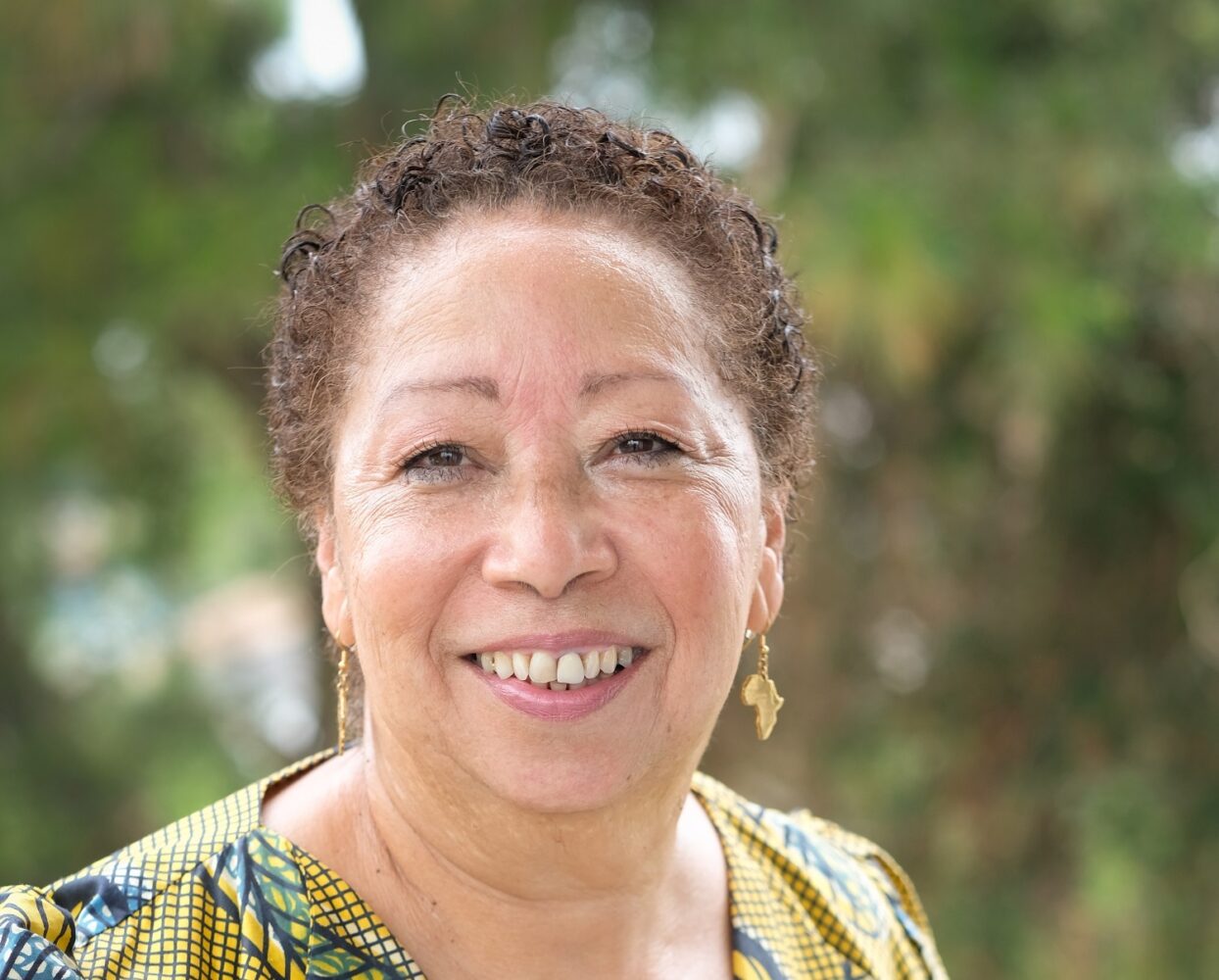Mona Lisa Saloy
Louisiana’s new poet laureate writes about and for Black Creoles of New Orleans
Published: November 29, 2021
Last Updated: February 28, 2022

Photo by Larry Everage
Mona Lisa Saloy, PhD, the new Louisiana Poet Laureate, is an award-winning author, folklorist, educator, and scholar of Creole culture. Currently the Conrad N. Hilton Endowed Professor of English at Dillard University, Dr. Saloy documents Creole culture in sidewalk songs, jump-rope rhymes, and clap-hand games to explore the importance of play. She writes on the significance of the Black Beat poets, especially Bob Kaufman; on the African American toasting tradition; Black talk; and on keeping Creole to today. Her first book, Red Beans & Ricely Yours, won the T. S. Eliot Prize and the PEN/Oakland Josephine Miles Award. Her collection Second Line Home captures New Orleans speech and family dynamics and celebrates the unique culture the world loves. Saloy has lectured on Black Creole culture at Poets House-NYC, the Smithsonian, Purdue University, the University of Washington, and Woodland Patterns Book Center. She is an editorial reviewer for Meridians: Feminism, Race, Transnationalism. Her recent publications of verse include “New Orleans, a Neighborhood Nation,” in the anthology I Am New Orleans, edited by Kalamu ya Salaam and work in the newest Chicago Quarterly Review, Vol. 33, Anthology of Black American Literature. Saloy writes for those who don’t or can’t tell Black Creole cultural stories. Learn more at monalisasaloy.com or at @redbeansista on Twitter.
Word Works
I’m about how words
work up a gumbo of culture,
stamped and certified African,
delivered on southern American soil.
In my word house,
we spit out articles and prepositions
like bitter chewing tobacco.
We lean on words that
paint pictures of galait
and grits and good times,
sittin’ under gallery shades,
sippin’ lemonade,
wearin’ the afternoon
like a new dress.
This, my birthright,
gives a sense of place
that gets under your skin
like a swamp leech or a good story
out for blood.
The region gives you toast
or beignets with jam.
The R & B, Blues, Jazz, and Reggae rhythms spice
Saturday-night suppers
and street parades,
when the Grand Marshall
leads the Second line
after a funeral or
any good excuse to party
where umbrellas dance.
Folks all colored
from pale and yellow
to midnight blue-black
never just stand back and watch
they gon’ say it how they see it
how they feel,
‘bout everything and then some,
from roaches to do-rags,
from daddy-do right
to David Ku-Klux Duke,
to sisters wringing
the barest budget for another meal.
So, here’s a taste,
begun in a roux,
sauteed in lines like
“Trust a man as far as you can see him,
cause you know,
stiff stuff don’t have no conscience”
Sista Sarah said.
She had nine kids
and three grand kids,
didn’t look a day over 40.
Said she was preserved because
“she left the fun box in and
took the trouble box out.”
Then Hebert cut in from the curb,
and fun was all he heard.
Said he was
“the women’s pet
the sissy’s regret
and the whore’s lollipop.”
And Sista Sarah said well
“pass the bread, cause
that’s baloney for true!”
So, call this a Crescent City mambo,
of days in peopled streets,
or nights in low-lighted clubs
on boulevards,
where passers-by pale and bloom
like days-old irises or azaleas,
the places where neighborhood front porches
and side galleries stand vigil
for tall talkers
and pass-the-time rappers,
here, in my house,
a crescent city mambo in words.
I Had Forgotten The Loud
laughing locusts do at night,
the smell of hot grass
steaming under end-of-summer rain.
Hurricane Elena was prayed away from New Orleans
by Holy women, Haints, and Loas.
Hurricanes, the crescent city crusade,
like bayou music from Allen Toussaint,
the R & B basic brew:
“Hey there sugar-dumplin’
let me tell you somethin’. . . .”
from King Floyd or Irma Thomas,
who used to be called colored singers,
or chitterling-circuit crooners.
New Orleans leaves a honey taste in my mouth.
The cracked boulevards and weeping willows
shade bare front porches
and call her children home.
I holler, “Hey-now!”
Come southern grown, like
mirliton and magnolias.
